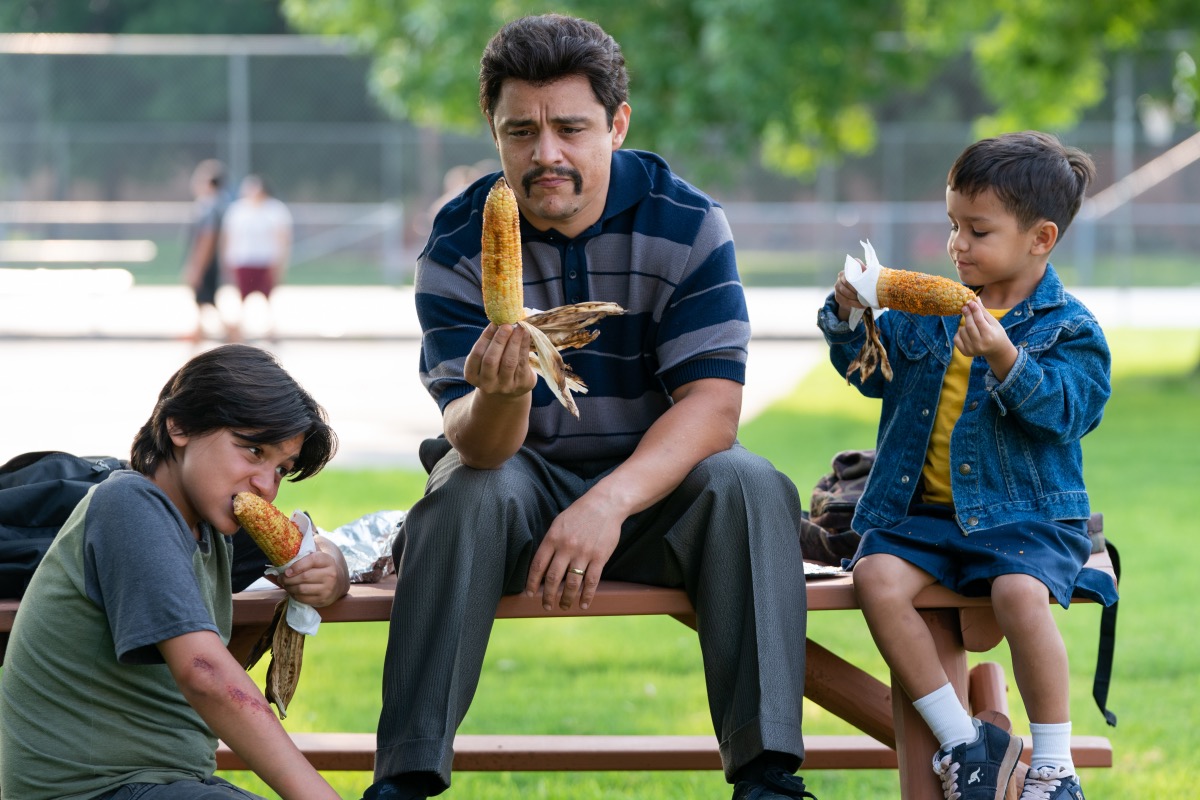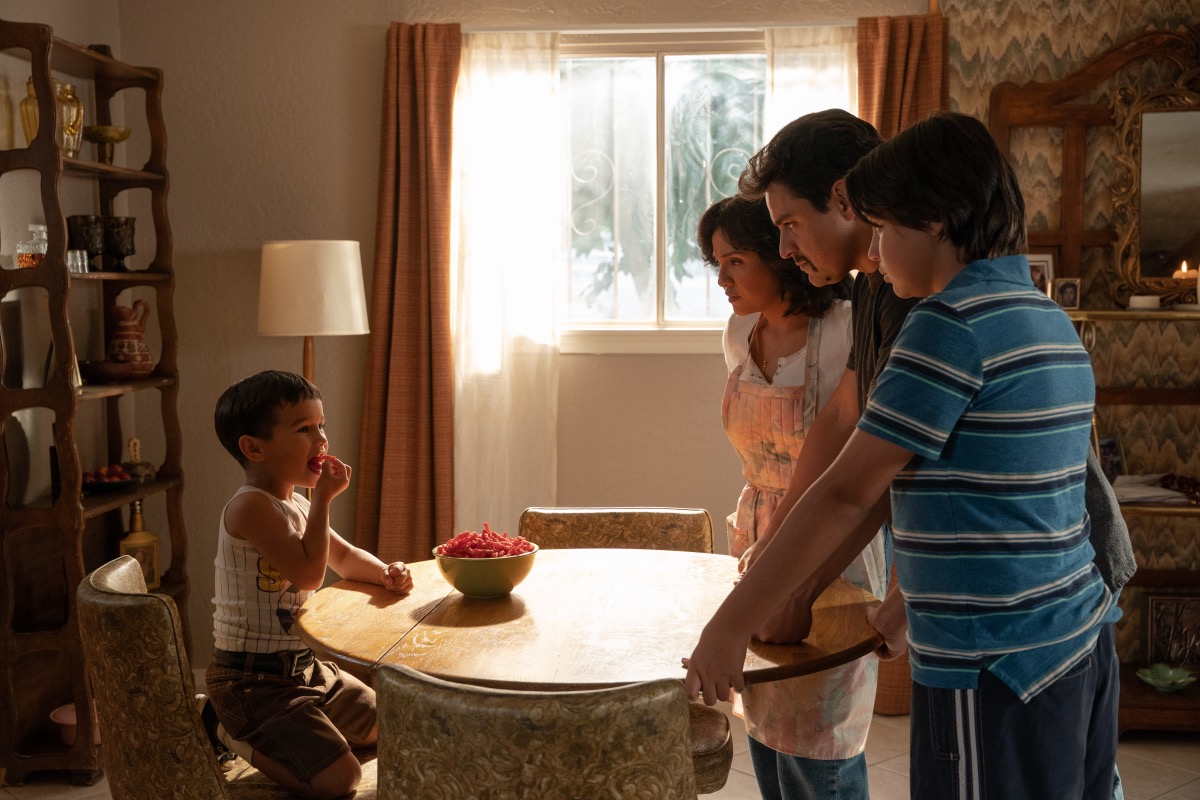

Hunter Jones, Jesse Garcia and Brice Gonzalez in ‘Flamin’ Hot.’ (Emily Aragones/Searchlight Pictures)
Eva Longoria’s directorial debut Flamin’ Hot rejoices in Chicano culture through music, mustaches, and mood. This film is a celebration of a particular shade of Latinidad, and as someone who hails from the culture, I found it very satisfying to watch—it is, after all, still rare to see our community on screen, especially with a big budget. And Flamin’ Hot portrays us in all our shaggy-haired, shirts-buttoned-to-the-top glory.
Thanks to Longoria behind the camera, Linda Yvette Chavez writing the script, Chicanos Jesse Garcia and Annie Gonzalez starring, and a bunch of other Latinos behind the screen, Flamin’ Hot gets all the little details right. And the cumulative effect, combined with how rarely we see such care taken when depicting our community, makes the film worth watching, full stop.
Not to say it’s perfect though. (Did I sometimes feel like I was watching a movie-length Frito-Lay commercial?)
Flamin’ Hot follows Richard Montañez, the real-life janitor at the snack company who became an executive without connections or even a high school degree. There’s been some controversy around exactly how he did it—in his memoir he pegged his rise to inventing the now iconic Flamin’ Hot brand. The Los Angeles Times investigated that claim and found it flimsy, but the legend remains.
And indeed, Chavez’s script shows how both versions can be true—how would a janitor in SoCal know what execs in the middle of the country were up to anyway?. Her script squarely makes Richard the hero of the story, highlighting the many reasons to root for him.
Richard starts off in a farmworker family with an alcoholic and abusive dad. He marries his childhood sweetheart Judy and they spend some time in a gang before straightening out and having kids. But trying to get ahead without breaking the law isn’t easy, as the young couple faces racism and classism at every turn.
Throughout, Richard comes across as deeply decent. Yes, he has some demons thanks to his father wound, but he never wishes anyone any harm. He listens to his kids, loves his wife, and honestly just wants to grow and learn. It’s infectious and he wins over a lot of —but not all— people with his charm.
It’s no surprise that he succeeds beyond his wildest dreams. His success is thanks to his charm and humility, but also his ability to tell a multinational conglomerate how to market its products to U.S.-based Latinos—which feels a little problematic to me. I just don’t buy the idea that our community being part of the U.S. junk-food economy is anything like arriving. Flamin’ Hot Cheetos as a product just isn’t empowering to me.


From left, Brice Gonzalez, Annie Gonzalez, Jesse Garcia and Hunter Jones in ‘Flamin’ Hot.’ (Emily Aragones/Searchlight Pictures)
But the film is, and not because Robert’s meteoric rise is a model for us. His story is particular and exceptional, and that’s all well and good.
Instead, the film functions as a declaration that our culture matters. Where Netflix’s Selena: The Series was vastly underresourced —and it showed— Flamin’ Hot is beautifully presented with great costumes, sets, and storytelling.
In particular, Annie Gonzalez eats up her role as Judy. She’s so many women I know, toggling between a super tough and super supportive demeanor that feels as true as it is funny and heartfelt. Even her hairstyle changes ring true, mimicking my family albums.
My concerns about capitalism and consumer culture aside, Flamin’ Hot made me smile and think and feel proud. That is my culture up on the screen —my people— represented with dignity and respect even when they’re being foolish.
And foolish they are, but they’re also loving and learning, struggling and succeeding. It’s a far-too-rare combination, and if it takes a beloved snack food to get that story told, well, I guess I’ll take it.
Even if I prefer Takis.
***
Cristina Escobar is the entertainment reporter for Latino Rebels. She is also the co-founder of latinamedia.co, uplifting Latina and gender non-conforming Latinx perspectives in media. She’s a member of the Latino Entertainment Journalists Association and writes at the intersection of race, gender, and pop culture. Twitter: @cescobarandrade


